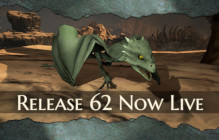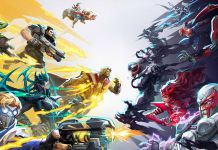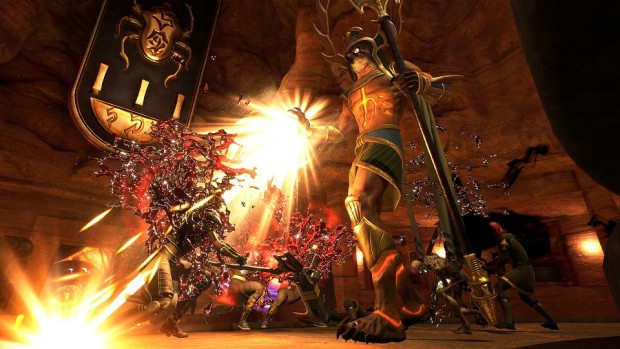Breach Dev Talks About Asymmetrical Gameplay (And Why Heroes Of The Storm Didn't Succeed)
On GamesIndustry.biz, QC Games President and CEO Dallas Dickinson has plenty to say about his company's game, Breach, which is currently in early access. His primary focus is on how his team approached the challenge of asymmetric gameplay and how that provides varying strategies for players:
When you set up a game where the goals for each side are exceedingly different, finding the weird optimal paths... maybe in the psychology of the player, you already know you're doing something different from that player so what other weird things can you try out?
To support that, Dickinson said Breach gives players on both sides -- hero and Veil Demon -- "a deep toolkit" to pull strategies from. He hopes that will lead to both a number of viable strategies but also full-length matches and "50-50" final boss fights between players and Veil Demons.
He also brings up Heroes of the Storm, which, in creating non-standard MOBA maps that tried to do something else other than the typical three-lane push, wound up restricting itself and reducing the number of viable strategies. That stands in contrast to League of Legends, Dickinson said, which tries to "offer one to four alternative strategies" every season to counter what Riot Games perceives as optimal strategies.
In short, Riot seeks to improve variety by giving its players more to do in its core mode, whereas HotS tried to do that by giving players more modes to play. While those might seem equivalent on the surface -- more is more, after all -- it made it so that, in those alternate modes, there were optimal strategies that made those modes repetitive. I'm not intimately familiar with all of HotS' mechanics and maps, but I'd assume that it was difficult, or impossible, to tweak those maps or heroes so as to introduce that same level of strategy without causing other problems across the rest of the game.
Whatever the case, it's nice to see devs for a new game looking at the efforts of games that have come before them -- even games that don't seem to match their exact genre -- and getting to the core of what worked or didn't work and why. Dickinson also had some things to say about Evolve, which was more similar to Breach, with its asymmetrical gameplay, so make sure to check out the full interview.
Related Articles
About the Author

Jason Winter is a veteran gaming journalist, he brings a wide range of experience to MMOBomb, including two years with Beckett Media where he served as the editor of the leading gaming magazine Massive Online Gamer. He has also written professionally for several gaming websites.
More Stories by Jason WinterRead Next

Shroud of the Avatar released yet another update today, adding plenty of new content for players to explore.
You May Enjoy

The new episode introduces a newly-awakened Descendant with secrets to uncover.

Come for the cute and fuzzy creatures, stay for the exploration and puzzles

We’ll say that cautious excitement is warranted for fans of the IP.

How could Marvel Rivals improve the game in 2026? Here is a look at some of the most popular ideas.

Side note: if a single player can ruin the entire enemy team in a team based game, I don't feel that's a good thing.
When this guys "peak of innovation" dies because it's copy and paste of every other game, I'll be laughing.
HoTS 'failed' for the same reason DoTA2 isn't hugely popular and the same reason Smite doesn't have the high numbers:
Simply put, League is King. And not ij a good way. It's very much like how CoD was, or how Fortnite is now. When people interested in MOBAs try one, it's always almost always League and they often get turned off. Just like Battle Royal (to an extent) and just like FPS games. They get a bad first impression and that writes the whole of the story for them.
HoTS failed because of a lack of publicity, newcomers being driven off by League and DoTA and a situatuon where players coming off of LoL or DoTA were so conditioned to their respective games that HoTS, which stands out among the games for its different approach to staging (that is how you interact with and reach early, mid and late game), was too drastic a change. Things like Communal levels and a lack of an item shop remove the individual player focus they are accustomed to (and often idolize) and replaces it with a dire need for team synergy snd cooperation, as even character that are "Hyper Carries" are not ofte able to singlehandedly win games.
These issues, when combined, make HoTS difficult to settle in to, considering that veterans don't transition well and new players are sacrificed to Riot.